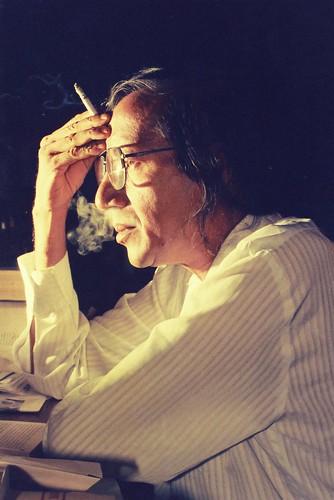1 December 2010, 4:46 am
The Sri Lankan English novel has to be declared an endangered species. We have become so bankrupt that in the year 2009 the Literary Panel of the Department of Cultural Affairs could not find an English novel which deserved the State Award. In 2010, there was an award for the Best English Novel. But we have not heard much about this book, from the members of the Panel or the media. This makes us wonder if our English newspapers are also discussing and promoting only the Sinhala novel, because they too have accepted that there is no hope for the English novel.
We have to make a humble request from those who judged the best English novel, to enlighten us on the reasons for selecting this book with less than 25,000 words, tell us if it is a novel or a novella, or a story book, and also if they could explain why it is the best novel of the year. Then we, the semi-literate readers, could also be able to appreciate and enjoy the novel and be able to congratulate the writer for this masterpiece.
Today the Sinhala novel is showing a vast improvement. We had Simon Nawagaththegama and Sugathapala De Silva with their new writings, and now we have Sinhala writers, like Manjula Wediwardena, Upali Ubayasekara, Sunanda Mahendra, Karunadasa Suuriarachchi who have broken the shackles and are coming out with creative works which are a match to the modern western novel. I have to add the name of Rev. Batuwangala Rahula himi with his latest novel “Ranpata Chitrayak Athingath Mahalla”. The organisers of the annual awards for the Sinhala novel are taking credit for this rapid progress, but it could be said that the development of the Sinhala novel is in spite of the annual awards. Many of our writers and the readers believe that the professors, doctors and the literati who are on the literary panels are still living in the mid twentieth century, that they still believe in the traditional novel, dealing in traditional themes presented in a traditional way.
The award for the best Sinhala novel has been discussed at many forums, those who sat on the panels have given their reasons for the selection. Our critics too, both in the Sinhala and English media are criticizing the new Sinhala novel looking only at its language and grammar or how it could affect our traditional cultural values.
The way the awards are criticized in the media, the award winning novel could be the worst possible book ever written. No one says anything good about it. This leads to factions among the writers, critics and the publishers. The attacks become more personal.
The advantage for the Sinhala writer is that there is a market for Sinhala novels and our publishers encourage them, and some of our publishers have no hesitation in publishing experimental novels. That is why we have over 150 new Sinhala novels coming out every year. Some of them cannot be considered as novels, some are influenced by the mega tele-dramas. Yet the writers keep on writing. New writers emerge every day. Publishers keep on publishing. The Sinhala readers keep on reading. Ever year the best novel also receive one or more awards. We also find some writers begin to write with the next years award in mind. Some writers expect to win the award every year, when they have won it once, they begin to believe that they are the best writers on earth.
Our publishers hesitate to accept a new English novel, from a new writer, or one who does not have the money to pay for the publication or does not have the right contacts in the right places to get a novel published or to be picked for an award. An English novel published in Sri Lanka does not have any opportunity for a market outside this country. Even in neighbouring India, where there is a big demand for English novels, the Indian distributors are not interested in novels published here. To make matters worse, our readers are getting addicted to more and more of Sinhala translations of English novels.
It is not surprising that the National Book Development Board is also offering financial assistance for Sinhala writers only. The only other opportunity for an emerging writer in English was the manuscript competition held by the Department of Cultural Affairs till recently. This door too has been shut.
All this is happening at a time when there are a few people among us who believe that a person can write well only in his mother tongue. They ask why we should write in English. If we listen to then we would be going back a half century to a time when many people believed that English was not necessary either for education, for business or for literature. Today our children are still paying the price for it.
FONTE: http://saadhu.com/
http://saadhu.com/blog/12/srilankan-english-novel.html
FOTO: flickr.com

Nenhum comentário:
Postar um comentário